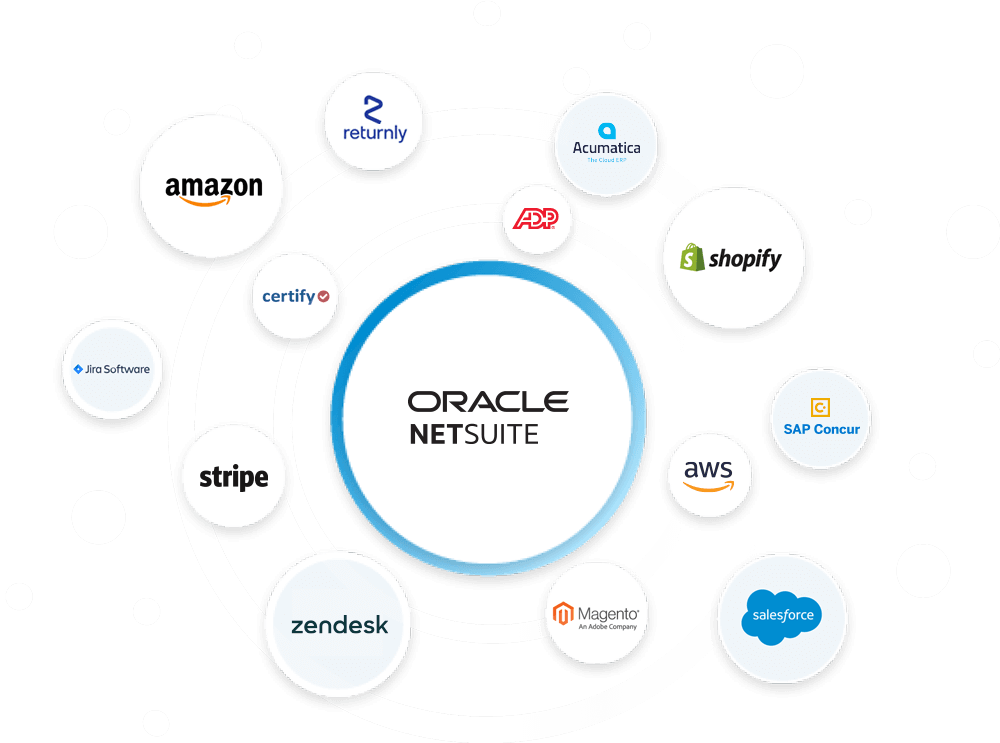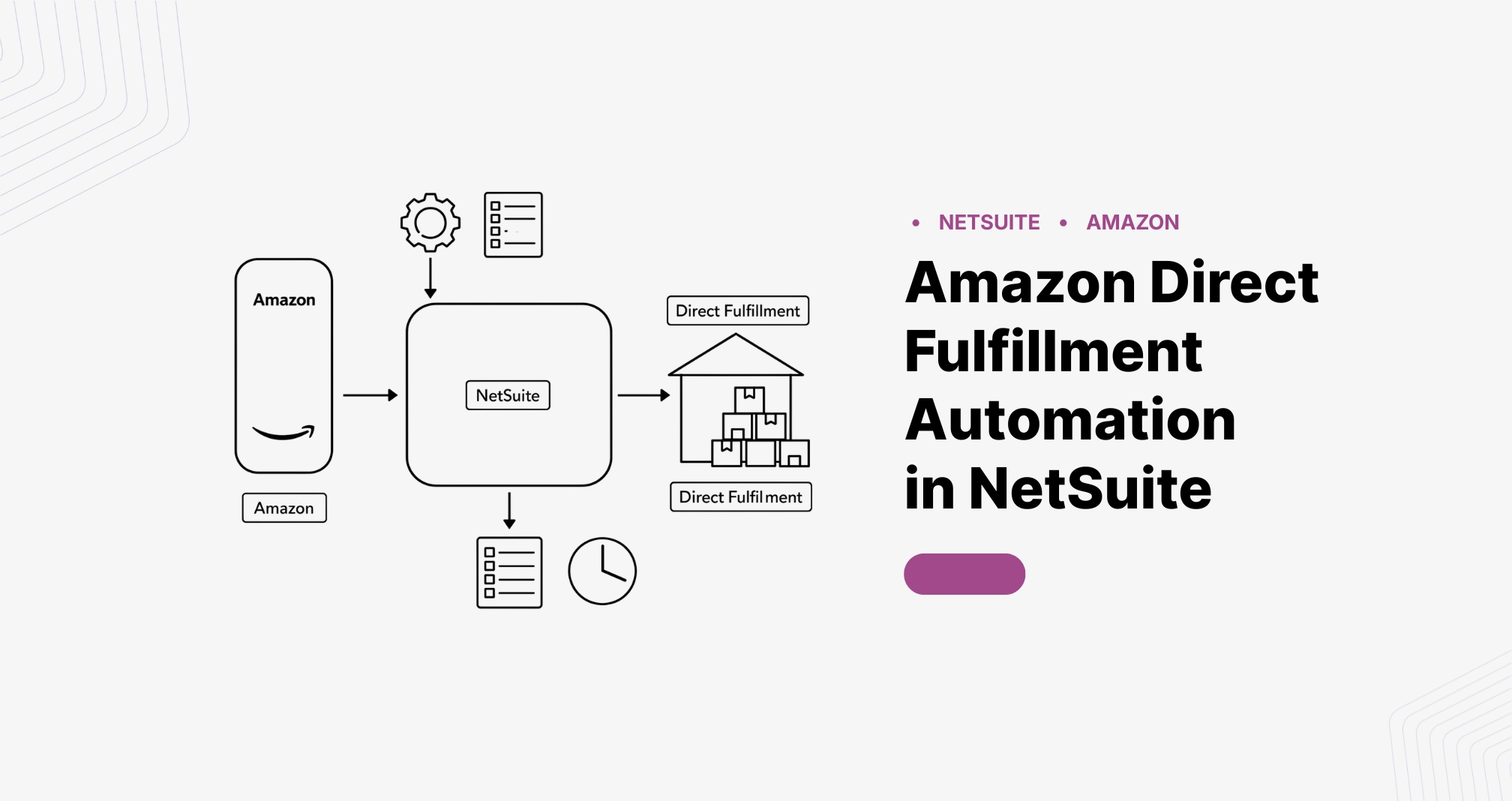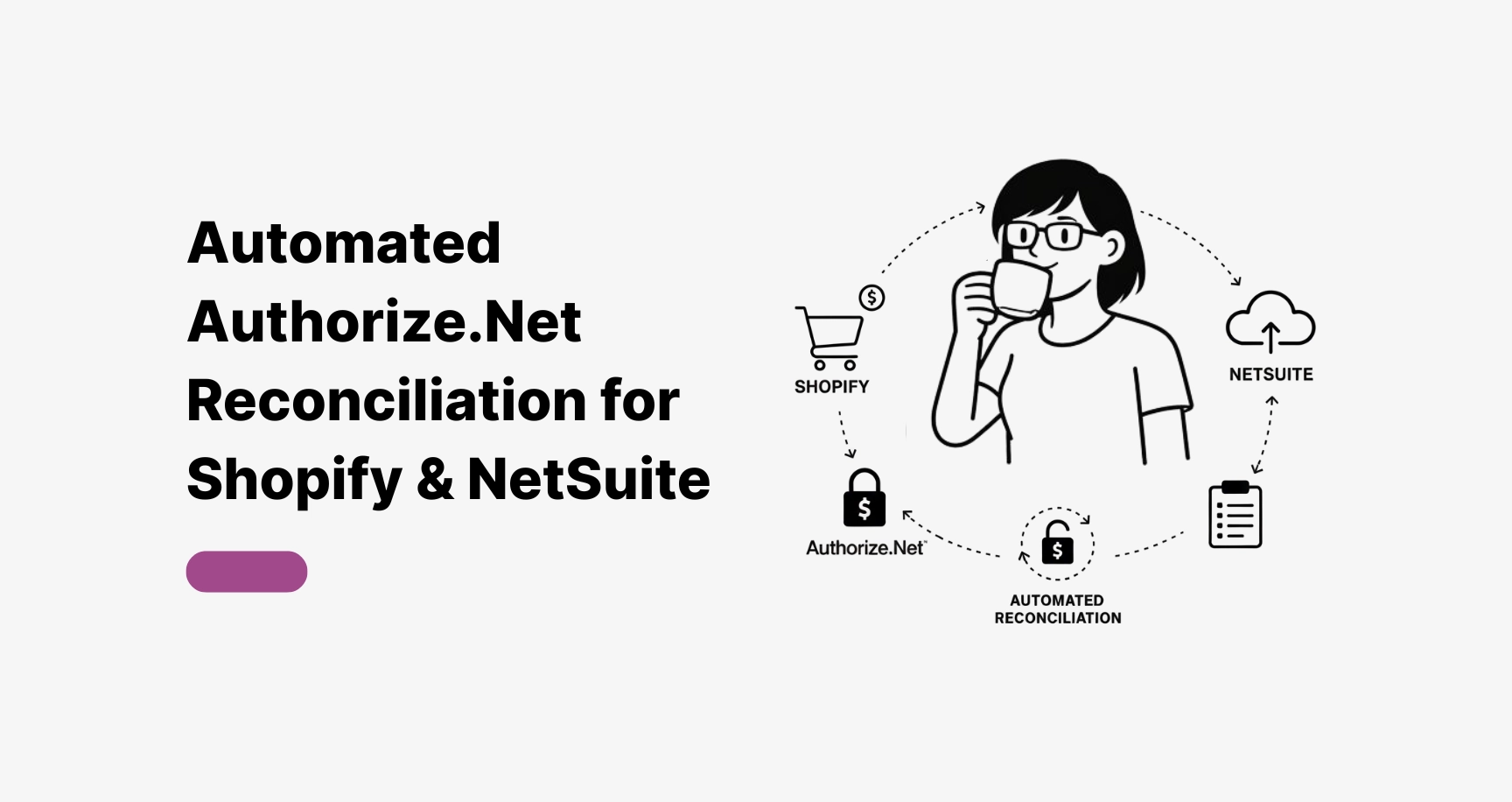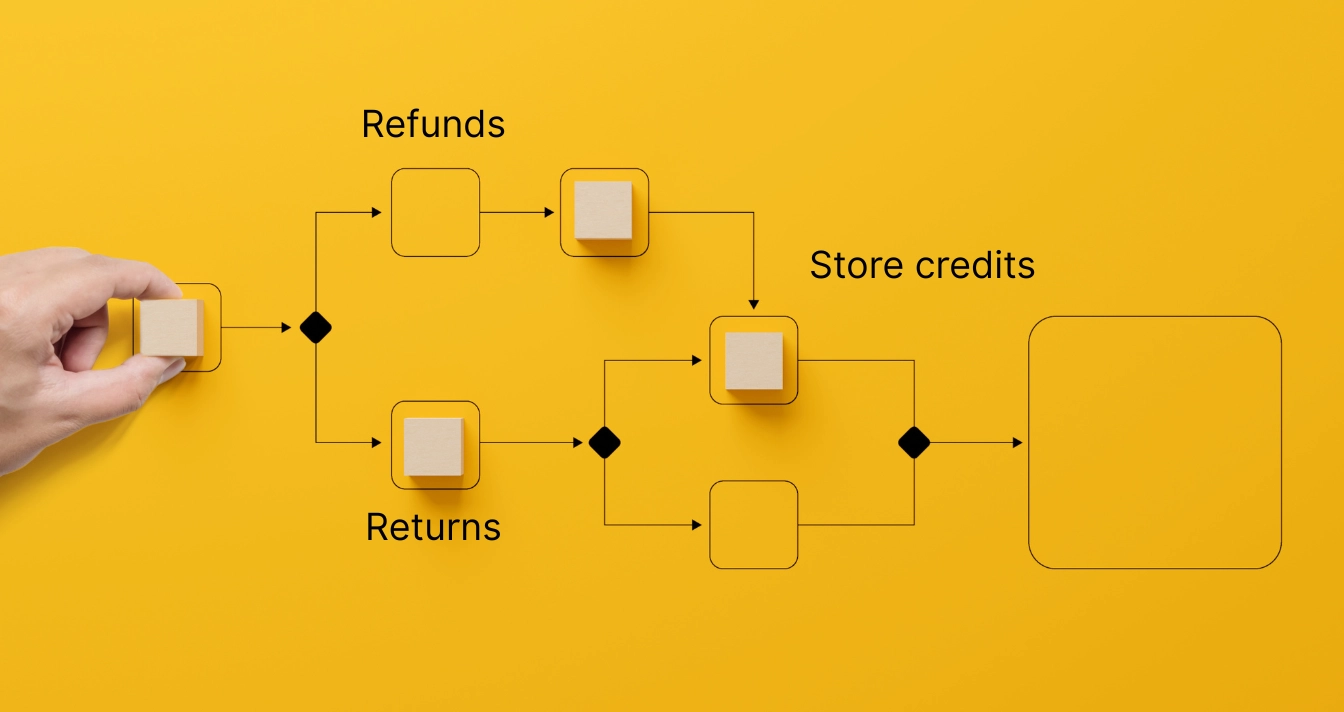Celigo is one of the best middleware solutions for connecting NetSuite with a plethora of powerful platforms such as HubSpot, Shopify, Amazon and Salesforce. Among other things, it helps businesses of all sizes to streamline their workflows and ensure the real-time synchronization of critical data. But when deciding whether to proceed with Celigo or not, two questions always arise: is Celigo pricing affordable enough and is it, ultimately, worth the investment?
In this article, we’ll be answering these questions and more – we’ll look at available subscription plans, nuanced factors shaping the total cost of Celigo ownership as well as provide you with potential ROI calculations. On top of that, we will draw from our rich Celigo implementation experience and equip you with practical tips for cost optimization and look into Celigo’s key features and benefits.
Celigo Pricing
As of April 2024, Celigo pricing is not publicly available – to get the full information on the offers you need to request a quote from the Celigo team after a sales demo with them.
However, there is enough unofficial information to make certain conclusions as to whether Celigo is worth the investment. As a Celigo partner, we do possess more specific figures, but in this article we’ll only delve into what is known and can be disclosed.
Subscription Plans
There are 5 known distinct service packages that Celigo offers:
- Free Edition: This plan is available to everyone free of charge – it entitles you to only 1 integration flow between 2 endpoints with no additional benefits.
- Standard Edition: This one is ideal for those who only start their journey with the Celigo platform. Standard Edition provides access to 3 endpoints and 16 flows, complemented by Essential Support and API management.
- Professional Edition: Professional Edition elevates capabilities with 5 endpoints, 100 flows, and a Preferred Support plan. Additionally, users benefit from robust API management features and receive access to a Sandbox account, facilitating testing and development in a controlled environment.
- Premium Edition: Premium Edition offers 10 endpoints and unlimited flows. It also includes Premier Support, API management capabilities, a Sandbox environment, Single Sign-On (SSO) support, and access to an external FTP site for enhanced data integration capabilities.
- Enterprise Edition: Geared towards large enterprises aiming to integrate multiple departments and processes – Enterprise Edition provides access to 20 Endpoints and unlimited flows, coupled with Premier Support. Additionally, users benefit from advanced API management features, a Sandbox environment, SSO support, and the inclusion of two external FTP sites.
NOTE: there is also a 30-day free trial of the Premium version available on-demand.
Additional Total Cost Factors
- Integration Complexity: High degree of customization, complex data mapping, large data volumes, strong security are all factors that will increase the total cost of Celigo for your business;
- Advanced Features: Custom connectors that are not directly supported by Celigo as well as features such as advanced error handling, scheduling and reporting will also bump up the price;
- Implementation Process: The initial Celigo implementation as well as its ongoing maintenance are bound to incur additional costs – that also includes procuring and installing necessary software licenses and performing employee training on solution usage and maintenance. In case you don’t feel confident to be able to handle all of this internally, consider reaching out to a team of certified Celigo consultants like Hairball.
Price Estimate and ROI Calculation
According to the data from Vendr (that we can also confirm as reflective of reality), you may expect the following costs from Celigo usage:
- For companies with approximately 200 employees, contract pricing falls within the annual range of $12,800 to $25,500.
- Organizations boasting a larger headcount of around 1000 employees can expect pricing ranging from $16,500 to $34,100 annually.
- Large-scale enterprises with 1001 or more employees are positioned within a higher price bracket, with costs ranging from $29,100 to $73,300 annually.
Additionally, don’t forget that Celigo may offer custom pricing solutions tailored to the requirements of your particular case.
The above information gets substantiated and complemented by a study by Forrester Consulting from 2022, that scrutinized the potential ROI for enterprises using Celigo. By conducting customer interviews and thorough financial analysis, Forrester uncovered that a typical enterprise witnesses benefits totaling $820,000 over three years, against costs of $176,000. This equates to a net present value (NPV) of $643,000 and an impressive ROI of 364%.
Specifically, they pointed out that project development timelines were slashed by up to 75%, error resolution time – by 90%, data errors – by 50%. On top of that, Celigo enabled the respondents to reclaim over 100 hours of manual, repetitive, data-based tasks per employee per year.
From our experience, these numbers can also roughly be applied to small businesses, when scaled down proportionally according to the total number of employees.
Tips for Cost Optimization
In addition to a favorable ROI that Celigo brings to the table by itself, you may get an even bigger return if you implement the following practices before, during and after the implementation:
- Start with a Proof of Concept (POC): Before committing to a full-scale implementation, consider starting with a proof of concept (POC) to test Celigo’s capabilities in a controlled environment. This allows you to assess its suitability for your integration needs without incurring significant upfront costs. Focus on key use cases and evaluate Celigo’s performance, scalability, and ease of use during the POC phase.
- Utilize Celigo’s Connector Marketplace: Leverage Celigo’s Connector Marketplace to explore available connectors for integrating your business applications. Evaluate the cost and functionality of each connector to determine the most cost-effective options for your needs. Make sure to prioritize connectors that offer comprehensive coverage for your core applications while minimizing the need for custom development.
- Optimize Integration Workflows: Design efficient integration workflows to minimize processing time and resource utilization. For this purpose, take advantage of Celigo’s built-in workflow automation capabilities to automate repetitive tasks and streamline data transformations. Also optimize workflow logic to reduce unnecessary steps and ensure seamless data flow between applications.
- Monitor Resource Utilization: Use Celigo’s monitoring tools to track integration performance metrics, such as throughput, latency, and error rates – and identify inefficiencies in your integration. Gained information will help you to perform resource allocation in a way that will allow you to minimize costs.
- Regularly Review and Optimize Configurations: Remove redundant integrations, update mappings to reflect changes in data sources or schemas, and optimize workflow logic to improve efficiency. This will help you to prevent unnecessary costs associated with outdated or inefficient integrations.
- Invest in Training and Support: Finally, invest in training programs or engage with Celigo’s support resources to enhance your team’s proficiency with the platform. Ensure that your team is equipped with the necessary skills and knowledge to effectively utilize Celigo’s features and capabilities – otherwise, you may face many costly errors or inefficiencies.
Celigo Features and Benefits
Lastly, in this section, we’ll sum up the exact benefits a well implemented Celigo will yield for your business, regardless of its scale:
- Dynamic Data Mapping:Celigo’s intuitive interface allows for effortless data mapping between applications. Unlike traditional integration tools, Celigo dynamically adapts to changes in data structure, ensuring good communication even as systems evolve. This saves time and resources by removing the need for manual reconfiguration with every update.
- Robust Workflow Automation:Its powerful workflow engine enables the automation of complex business processes, from order fulfillment to invoice processing. With these automations, Celigo frees up your team to focus on strategic initiatives, driving efficiency and productivity.
- Pre-Built Connectors for Leading Applications:Celigo boasts a vast library of pre-built connectors for popular applications such as Salesforce, NetSuite, Shopify, and more. These connectors facilitate rapid integration setup, reducing deployment time from weeks to days.
- Real-Time Monitoring and Alerts:Receive instant notifications on integration failures or performance bottlenecks, allowing your team to address issues promptly. This way, Celigo minimizes downtime and ensures continuous data flow across your ecosystem.
- Drag-and-Drop Interface:Celigo’s user-friendly interface allows users to create and manage integrations without coding expertise. Its drag-and-drop functionality simplifies mapping and configuration, reducing reliance on IT resources.
- Scalability for Growing Businesses:Celigo can effortlessly scale along with you to accommodate increased data volumes and complexity. Its cloud-native architecture ensures optimal performance, regardless of whether you’re a small startup or a global enterprise.
- Comprehensive Data Governance and Compliance:With built-in encryption, access controls, and audit trails, Celigo ensures data integrity and confidentiality at every step. Moreover, Celigo adheres to industry standards such as GDPR and SOC 2 compliance, providing peace of mind in regulatory environments.
Conclusion
In our opinion, Celigo is definitely worth the investment; and we don’t say that lightly – the potential ROI of 364% speaks for itself. You may also be able to affect the ROI positively by starting with a PoC before launching a full-scale integration, using ready-made solutions available on Celigo’s Connector Marketplace and investing in user training for effective software management.
Overall, Celigo is a catalyst for organizational transformation, offering robust automation capabilities, data syncing, real time monitoring and a user-friendly interface for easy handling. And should you experience any problems before, during or after the Celigo implementation process, don’t hesitate to reach out to a team of professionals like.



